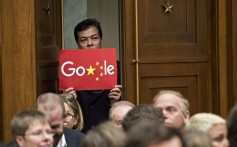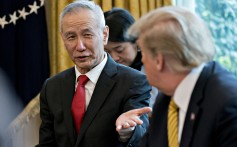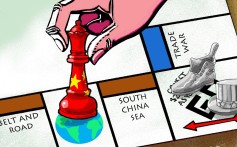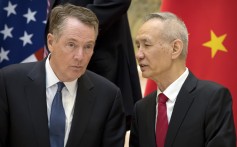Last week it was 5G; this week, drones. Washington has issued an alert warning against Chinese-made commercial unmanned aircraft for supposedly posing a threat to the cybersecurity of American businesses and critical US infrastructures.
The US Cybersecurity and Infrastructure Security Agency didn’t name names, but it’s fairly obvious it’s going after DJI, the global market leader based in Shenzhen, and another major mainland drone maker Yuneec.
The latest drone warning came after the White House issued orders to
, and bar US companies from supplying or buying from such Chinese companies deemed a threat to American national security – part of a wider war to undermine China’s global telecoms ambitions.
Is this the new tactic of a bullying hegemon? Bullying, yes; new, hardly!
Any hi-tech company with a Chinese-sounding name could be declared a threat to the United States. Not a surprise, though, if you had followed Edward Snowden. The Quadrennial Intelligence Review Final Report 2009 – one of many classified documents leaked by the American whistle-blower – presciently predicted the rise of a foreign technological challenger or challengers within the time frame of 10 to 15 years when America could be behind in a hi-tech field. That day is here; just think 5G.
To counter such “threats”, the report envisioned American spies conducting “clandestine penetration (through physical and cyber means), and counter-intelligence”, including theft of intellectual property.
In a 2015 article published in the legal news site Lawfare (
), Jack Goldsmith, a former US assistant attorney general and special counsel at the Department of Defence, gave a precise explanation of the state of US-sponsored espionage and sabotage.
“Note what it permits,” he wrote. “It permits economic espionage of foreign governments and institutions. It even permits theft of trade secrets from foreign firms. It just doesn’t allow such theft on behalf of US firms, and it doesn’t permit the government to give the stolen information to US firms. Even this limitation is qualified.
“The US [government] says it does not steal trade secrets on behalf of US firms (or give stolen trade secrets to US firms) in order ‘to enhance their international competitiveness or increase their bottom line’.
“But it would be consistent with this statement for the [US government] to steal trade secrets on behalf of US firms, or to give the stolen trade secrets to US firms, for some other purpose.”
Sabotaging another country’s hi-tech industries and their top companies is clearly sanctioned under this strategy.
This article appeared in the South China Morning Post print edition as: Industrial spying part of US foreign policy











Comments